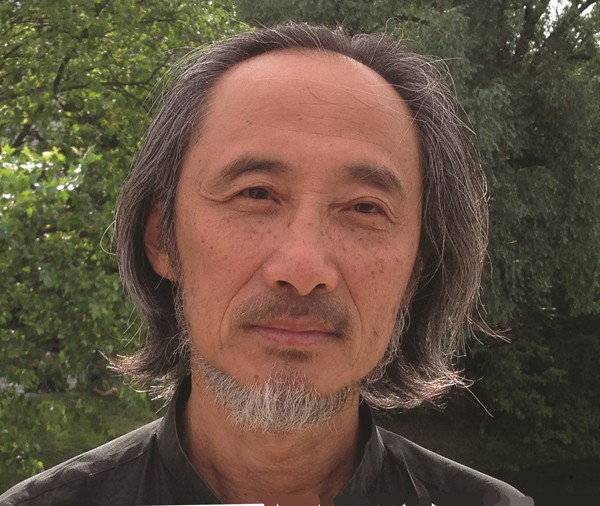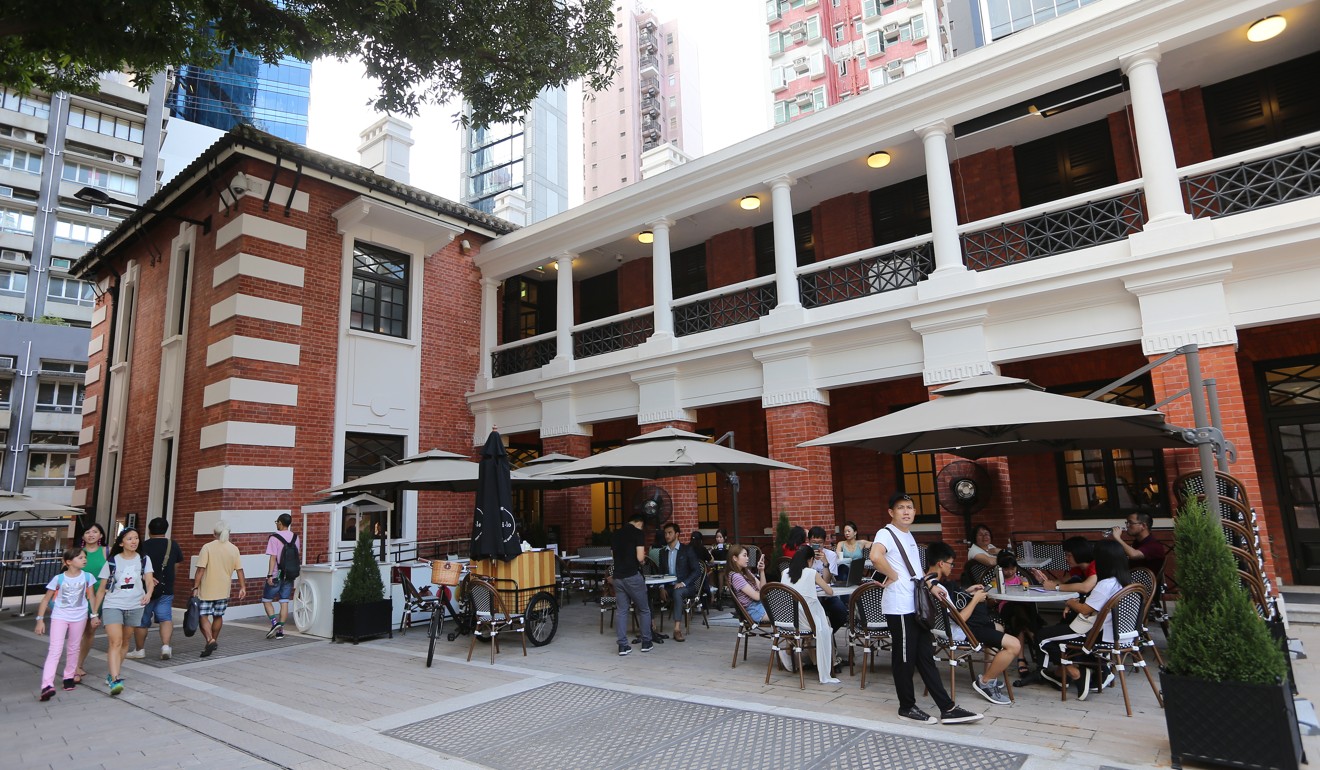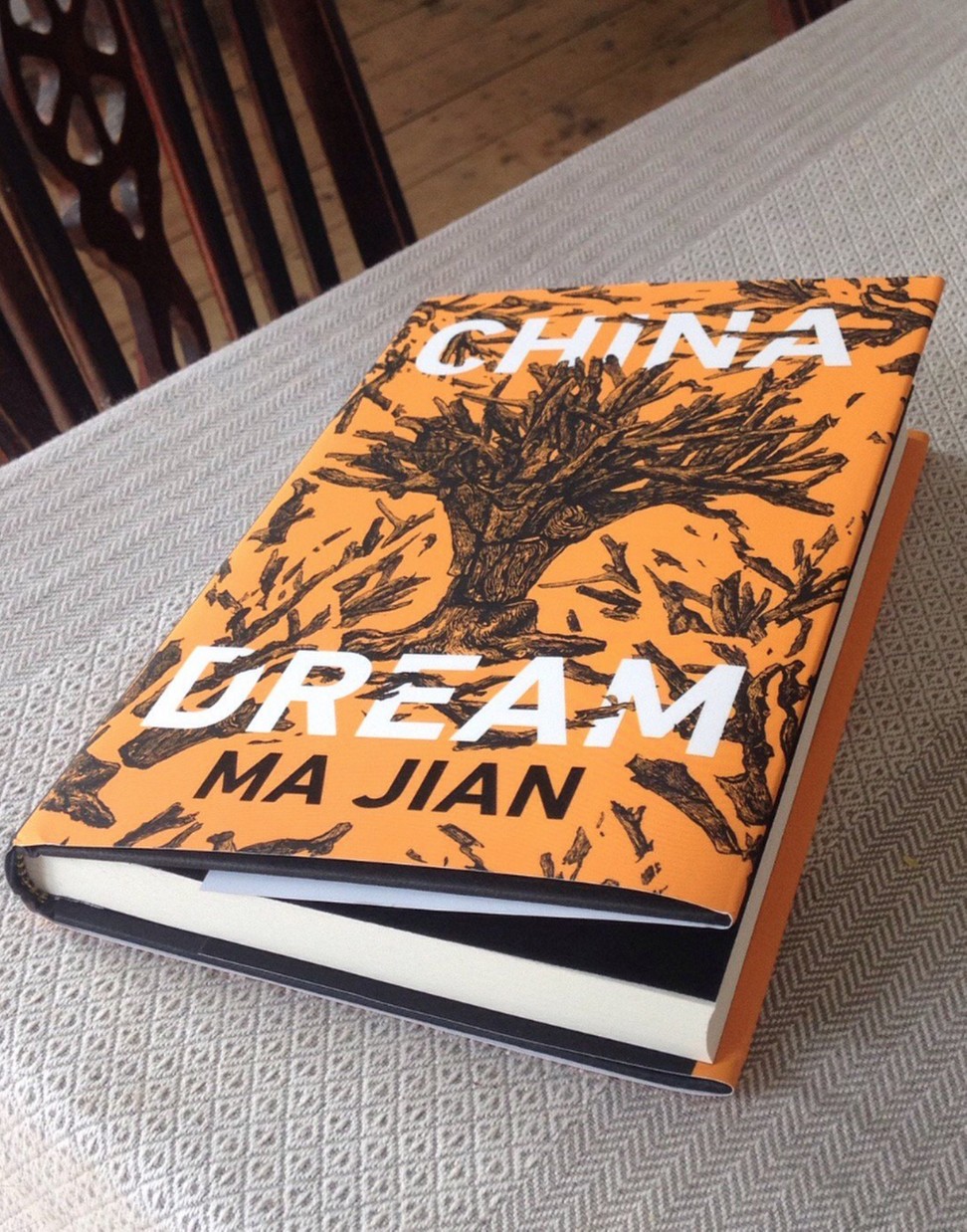
Chinese dissident author Ma Jian’s talks at Hong Kong’s Tai Kwun arts centre cancelled
- Writer was expected to introduce new novel China Dream at International Literary Festival
- Ma earlier revealed he was unable to find publisher in city for Chinese-language version of book critical of Beijing’s leadership
A Chinese dissident author’s appearances at a Hong Kong arts venue have been cancelled days after he revealed several publishers in the city refused to print the Chinese version of his latest novel, which is critical of the Beijing government.
The events’ organiser insisted they would go ahead in a different venue, while a group of local writers expressed suspicion that “political pressure may be a factor” in them being pulled.
Ma was one of 45 writers invited to the International Literary Festival, running at the venue from November 2 to 11. He was supposed to attend a panel discussion and give a solo talk to introduce his book, China Dream, on Saturday.
“The festival organisers still want my events to go ahead, so they are having to look for alternative venues,” the 65-year-old said.
China Dream by Ma Jian is a scathing satire of the absurd reality facing a silenced nation
Renovated by the Hong Kong Jockey Club and the local government, Tai Kwun is managed by non-profit operator Jockey Club CPS. Its director Timothy Calnin said: “We do not want Tai Kwun to become a platform to promote the political interests of any individual.”
He said Tai Kwun would work with the festival’s organisers to find a more suitable venue.
In response, Ma Jian wrote on his Twitter account on Thursday evening that he would not use Tai Kwun to promote his political interests.
“I’m a novelist, not an activist...My ‘politics’ are simple: I believe in free thought and free speech. Without them, life has no meaning,” he wrote.

Bernard Chan, chairman of Tai Kwun’s advisory board, said he did not know why the venue management decided to cancel the event.
“I will have to learn more about the situation from the management, and I believe the issue will be raised in the next advisory board meeting,” Chan said.
Chan added that the board was not aware of any particular regulations concerning politically sensitive activities.
PEN Hong Kong, the local branch of the international writers’ association, said in a statement on Thursday it was “deeply concerned” about the case. The statement said the group was “concerned that political pressure may be a factor in Tai Kwun’s decision, given that Hong Kong has faced increasing pressure from Beijing to silence dissent”.
The group’s president, Jason Ng, said: “The cancellation appears to be at the very least an act of self-censorship. It is all the more jarring that the decision was made by a publicly funded venue that claims to celebrate and support the arts and creativity.”
He called on Tai Kwun to clarify the matter.
Phillipa Milne, director of the festival, said her organisation would not speculate on Tai Kwun’s motivations. Insisting the planned events were “all going ahead on schedule,” she said: “[We will] focus on our mission of ensuring our authors are all heard.”
On Thursday night, the festival updated on its website the event venue to be the Annex at Nan Fung Place, which is a 10-minute walk downhill from Tai Kwun.
The Hong Kong Journalists Association said it was “extremely concerned” about Tai Kwun’s decision in a statement issued on Thursday evening.
“Having two events cancelled within one week made the association worry that freedoms of expression and speech are under increasing pressure,” the association said.

Prior to Ma Jian’s case, the first international solo exhibition of Australia-based Chinese political cartoonist Badiucao was called off last Friday, with the event organisers citing safety concerns and Chinese authorities’ threats against the artist.
Ma revealed on Twitter on November 1 he was unable to have the Chinese-language version of China Dream published in Hong Kong. The author’s six previous novels – which are banned on the mainland and led to his exile – were all published in the city.
The English version of the novel was launched last week in Britain.
In his email on Thursday, the writer said he had approached several Hong Kong publishers last year, and all declined or failed to respond, except “one brave publisher [who] was eager to bring the book out”.
But that publisher required Ma to make several edits, including changing the name of a character called “Xi Jinping” – a reference to China’s president.
Ma agreed to the changes but the publisher pulled out at the last minute.
“He said it was clear to them that even if he published it, no bookseller in Hong Kong would dare sell it,” the author said. “I don’t blame the publishers. Their fears are understandable … they might be closed down or end up sharing the same fate as Gui Minhai.”
Ma declined to name the Hong Kong publishers he contacted.
Hong Kong is changing. Soon, it will become indistinguishable from the rest of China
China Dream revolves around the psychological breakdown of a corrupt Chinese official who becomes increasingly haunted by violent nightmares of his youth during the Cultural Revolution.
“It is a dystopian fable about tyranny, guilt and the erasure of history,” Ma said.
“It is extremely disappointing for me that China Dream hasn’t yet found a publisher [in Hong Kong],” the writer said, adding that he still hoped to find one in the city or in Taiwan.
Ma, who lived in Hong Kong for a decade before it was handed back from British to Chinese rule in 1997, remembered the city as “a haven of freedom, where I could write in peace, without fear of censorship or political interference”.
“Hong Kong is changing,” he said. “Soon, it will become indistinguishable from the rest of China.”
Ma was not allowed to travel to the mainland from Hong Kong in 2011, but he said he was not worried about his visit to the city later this week.
“If I am rejected from entering the city or prevented from speaking, it would simply prove that everything I wrote about in China Dream is true,” he said.
Ma Jian on the Cultural Revolution, challenging China and finding a home
At midnight on Thursday, dissident writer Bei Ling announced on his Facebook page that the Taiwan-based independent publishing house Tendency, which he co-founded in 2003, would produce the Chinese version of Ma's novel in 2019.
In a post jointly published with Ma, Bei said the writer had sent Tendency the manuscript several months ago to explore the possibility of publishing in Taiwan.
In light of Ma's talks being cancelled by Tai Kwun, Bei Ling said: "To defend the basic freedoms of publication and creative writing, Tendency is honored to confirm that it will publish the Chinese version of Ma Jian's novel China Dream in Taiwan in 2019, and distribute it to Chinese readers around the world."

In the past week during the festival, Tai Kwun has hosted a talk by journalists Tom Wright and Bradley Hope about their book Billion Dollar Whale, which documented their investigation into the 1MDB scandal, one of the biggest financial frauds in history, and another by historian Stephen Platt on how the Opium Wars brought about the end of the Qing dynasty.
This coming Sunday, the festival will feature at the same venue a discussion of sexual harassment in the literary world with three female writers; one of the participants, the American writer Leta Hong Fincher will also talk about her book Betraying Big Brother: The Feminist Awakening in China , which examines the growing feminist movement in mainland China.
Hong Kong’s leader Carrie Lam Cheng Yuet-ngor said on two occasions in April and May that Tai Kwun was “a big gift for Hongkongers”. And in her second Policy Address delivered last month, Lam said “activities held at Tai Kwun have received rave reviews from the public and arts organisations”.

